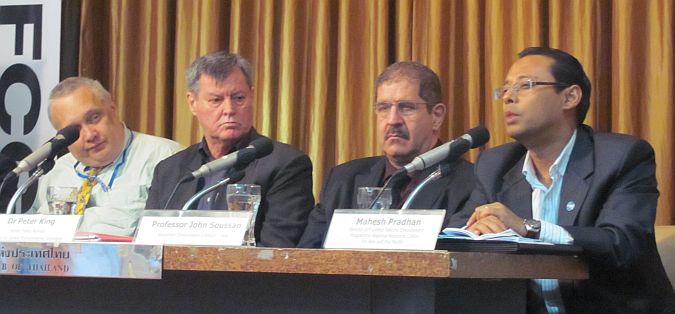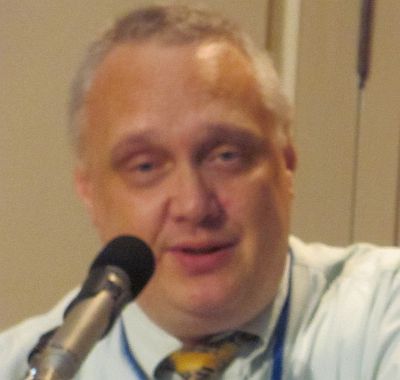“Adaptation is not the poor cousin to mitigation,” he said,
underscoring what he called the three emerging adaptation areas of
building reliance, science and technology and its application, and
partnership. Each of these areas was the focus of discussion at the
two-day international conference supported by UNEP. The conference
brought together leading researchers and policy makers to outline
strategies to mainstream adaptation into development planning.
As world leaders continue to grapple with strategies to reign in global
carbon dioxide emissions, millions across Asia are already experiencing
the impacts of climate change. Left unaddressed, these impacts will
greatly affect livelihoods and economic development across the region,
organizers said.
“There is no time to lose,” Dr. Steiner told a crowd gathered at the
Foreign Correspondent’s Club of Thailand (FCCT) on October 19, offering
the full backing of UNEP to the conference and its delegates for
informing the future decision-making and policy development.
The press conference event, organized by Swedish Environmental
Secretariat for Asia (SENSA) and AIT-United Nations Environment
Programme Regional Resource Centre for Asia and the Pacific (AIT-UNEP
RRC.AP), was also a platform for discussion and the debate with eminent
experts from United Nations Environment Programme (UNEP), Stockholm
Environment Institute – Asia, Institute for Global Environmental
Strategies (IGES) and AIT-UNEP RRC.AP. There were also informal
deliberations on the media's role in climate change adaptation and
development.
Dr. Anders Granlund, Director, SENSA, provided the opening and welcome
remarks. He spoke of positive changes on adaptation perspectives in
Asia, especially the new responsiveness of the private sector to
consider adaptation as important. “Asia is where this is happening,” he
said, stressing the looming consequences of climate change.
Mr. Mahesh Pradhan, Director, AIT-UNEP RRC.AP, outlined the concept of
“mainstreaming” in terms of ecologically-focused adaptation strategies
that promote sustainable and inclusive development. He emphasized the
unique vulnerability facing much of Asia-Pacific, particularly coastal
areas and Pacific islands. Providing a preview to the overall forum, he
echoed Dr. Steiner’s emphasis of partnerships within civil society,
community level, private sector and across sectors. “Partnership is
king,” Pradhan said.
Panelist Prof. John Soussan, Stockholm Environment Institute - Asia,
whose work focuses on the people-resource-policy relationships in
developing countries, with a particular focus on Asia, said the
conference was an attempt to de-mystify aspects of the climate change
issue with practical approaches. “Climate Change adaptation is about
development,” he said, saying there is “no magic bullet” to solving the
problems associated with our changing planet. He stressed that
adaptation must be about providing people with choices to cope with
their altered circumstances. Adaptation is about business, about
family, and it is about acting now in the face of a more uncertain
future, he emphasized.
Other speakers at the press conference included Mr. Mozaharul Alam,
Regional Climate Change Coordinator, United Nations Environment
Programme, and Dr. Peter King, Senior Policy Advisor, Institute for
Global Environmental Strategies in Japan.
A contributing author to the Fourth Assessment Report of the IPCC, Mr.
Alam has been a member of Bangladesh delegations at UNFCCC climate
change negotiations. Dr. King has established a sound reputation as one
of the Asian Development Banks's leading natural resources management
experts. He currently heads the Asian Environmental Compliance and
Enforcement Network Secretariat and also works as an independent
environmental consultant for international organizations.


